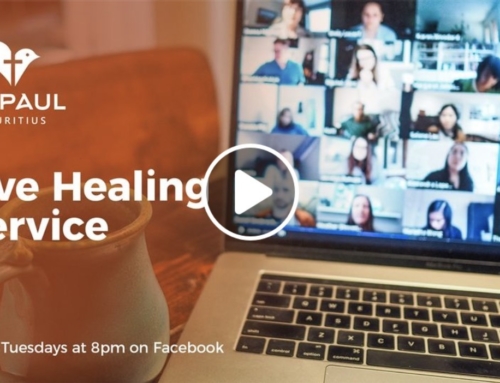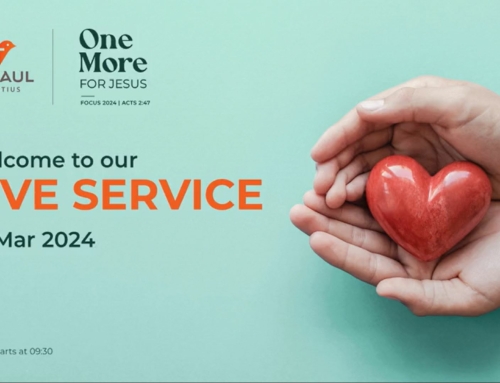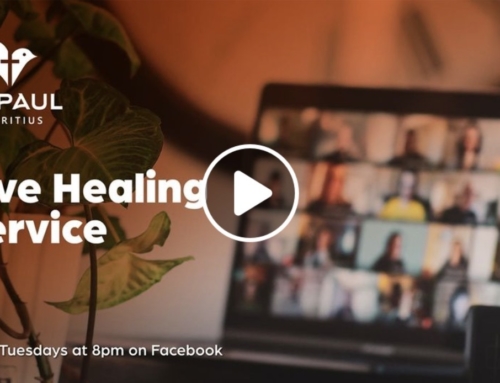Sermon by Ps Philip Tse
- Learn From Life Experience
Philippians 1:6 “He (God) who has begun a good work in you will complete it until the day of Jesus Christ”. When we become Christians, God begins a good work in us towards spiritual maturity. He speaks to us in many ways and shapes us through life experiences. Job 33:14 “God does speak – now one way, now another – though man may not perceive it.” Sometimes, an insignificant or coincidental experience could be a meaningful growth event in his life history.
God speaks to us mainly through the Bible with poems and sermons, but, by far, the largest part of the Bible is a record of human experience. Hebrews 13:7 “Remember your leaders, who spoke the Word of God to you. Consider the outcome of their way of life and imitate their faith”.
A Christian, who learns from life experience, whether good or bad, becomes wiser and more mature spiritually. We learn from life experience:
- by studying biblical stories, whether with a happy or sad end;
- by learning from the life experience of other persons, whether with a happy or sad end;
- by reflecting on our own life experience; and
- by staying aware of what God is saying at the time of the experience: Lord, what are you trying to teach me through the experience I am having right now?
- By asking questions such as What, Why and How? Such reflections will help us to understand (HEAD), to be convinced (HEART), and to put into practice (HAND)
We learn faster by learning from the life experiences of others, persons in the Bible and persons around you, rather than experiencing on our own. Our faith in Jesus Christ therefore grows faster if we regularly attend cell groups and the church to understand the Word of God and to learn from others.
- How valid is our Life Experience?
However, some Christians sometimes overemphasize personal life experience. They interpret life experience to draw out non-biblical conclusions or wrong life principles. Others take biblical verses out of their contexts and use the Bible incorrectly to prove what their experience “taught” them. They wrongly use life experience to interpret Scriptures, instead of using Scriptures to interpret experience. For example, some Christians may misinterpret their current painful life experience (due to their sin) by quoting only the 1st part of Romans 8:28 “And we know that all things work together for good to those who love God”. They don’t examine their painful life experience in the light of the 2nd part of the same verse “to those who are called according to His purpose”.
It is therefore important to understand the Word of God first so that we can have a good interpretation of life experience and principles. People who are untaught and unstable may twist the Word of God to their own destruction. 2 Peter 3:15-16 “… Paul, according to the wisdom given to him, has written to you, as also in all his epistles, speaking in them of these things, in which are some things hard to understand, which untaught and unstable people twist to their own destruction, as they do also the rest of the Scriptures”.
- It’s the Finish of our race of Life That Counts
Some people complain their personal “disadvantages” on starting their life experiences. They believe that they could have a better life experience and be better Christians by being born in the US, in a rich and educated family, in a Christian family, etc. Let us examine the two bible stories below:
- Salomon was born as the son of David, became a powerful and wise king, but finished his life experience poorly by marrying with foreign women and worshipping their gods. As a result of Salomon’s sin, the powerful and rich kingdom of Israel was divided after his reign (1 Kings 11:9-13).
- Peter was a simple fisherman and was not very educated. Despite being close to Jesus Christ during his life experience, he denied Jesus three times to save his life. Yet, he finished his life experience beautifully when he was baptized by the Holy Spirit, and he became a brave man who spoke the Word of God for the salvation of a multitude of persons.
It is not the start that counts, but how we finish our race of life really matters. God can take our life experiences, especially the painful ones, and use them in a positive way. 2 Corinthians 1:4 says “God comforts us in all our troubles so that we can comfort others. When others are troubled, we will be able to give them the same comfort God has given us”.
We trust God is in control of our setting of our birth time and the family into which we are born. “God determined the times set for them and the exact places where they should live” (Acts 17:26). If we complain about the “disadvantage” of where we were born, we are denying that God has the power to work in that situation – we are accusing God. Only can we stop complaining on our start that God can begin a good work in you will complete it until the day of Jesus Christ (Philippians 1:6).
- How do we know that God has begun a good work in us through our Life Experiences?
- We begin to seek God’s purpose and direction for our life. Over time, we shall notice a life pattern that God has designed for us – the past lessons He has taught us, the present lessons He is teaching us, and our expectancy for the way God will train and develop us;
- We become more sensitive to the Holy Spirit who guides throughout our life experiences;
- When we find ourselves more deliberate to bring the Good News to others with love, or to help others in their spiritual growth with pure motives (Philippians 1:15-16)
- It Takes Time to learn from life experience before doing great things
Luc 16:10 “Celui qui est fidèle dans les petites choses est aussi fidèle dans les grandes ; celui qui est malhonnête dans les petites choses est aussi malhonnête dans les grandes.”
Be patient with yourself. The increase of our spiritual maturity is a long process. We learn many things in life when we are faithful in small things. We also learn to exercise servanthood and humility. The exercise of servanthood and humility in small things prepare our heart for greater things which God has in store for us. From my life experience, I have noted that we start with being faithful in small things. In God’s time, we are then called to do greater things. After these great things, we are called back with being faithful in small things again until the next great things from God.
Jesus and Paul were faithful in small things. Although Jesus was God and was the Master of his disciples, He humbled and served his disciples by washing their feet (John 13:1-17). He also took time to play and bless the little children (Mark 10:13-16). Although Paul was a renowned preacher at that time, Paul picked up wood in the forest to light a fire after his ship was wrecked (Acts 28:3).
TO REFLECT AND DISCUSS:
What have you learned from your life experience in Year 2018?






